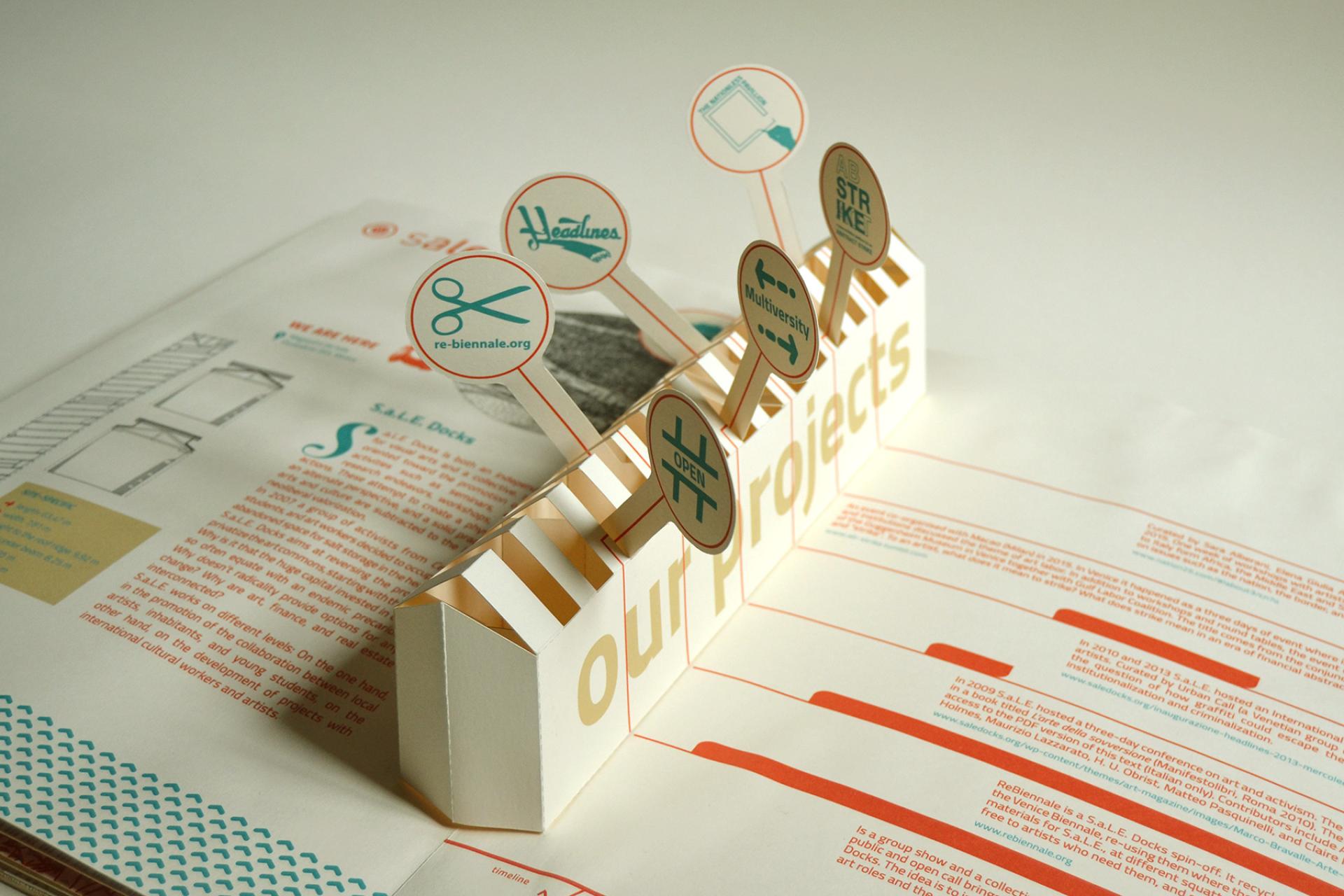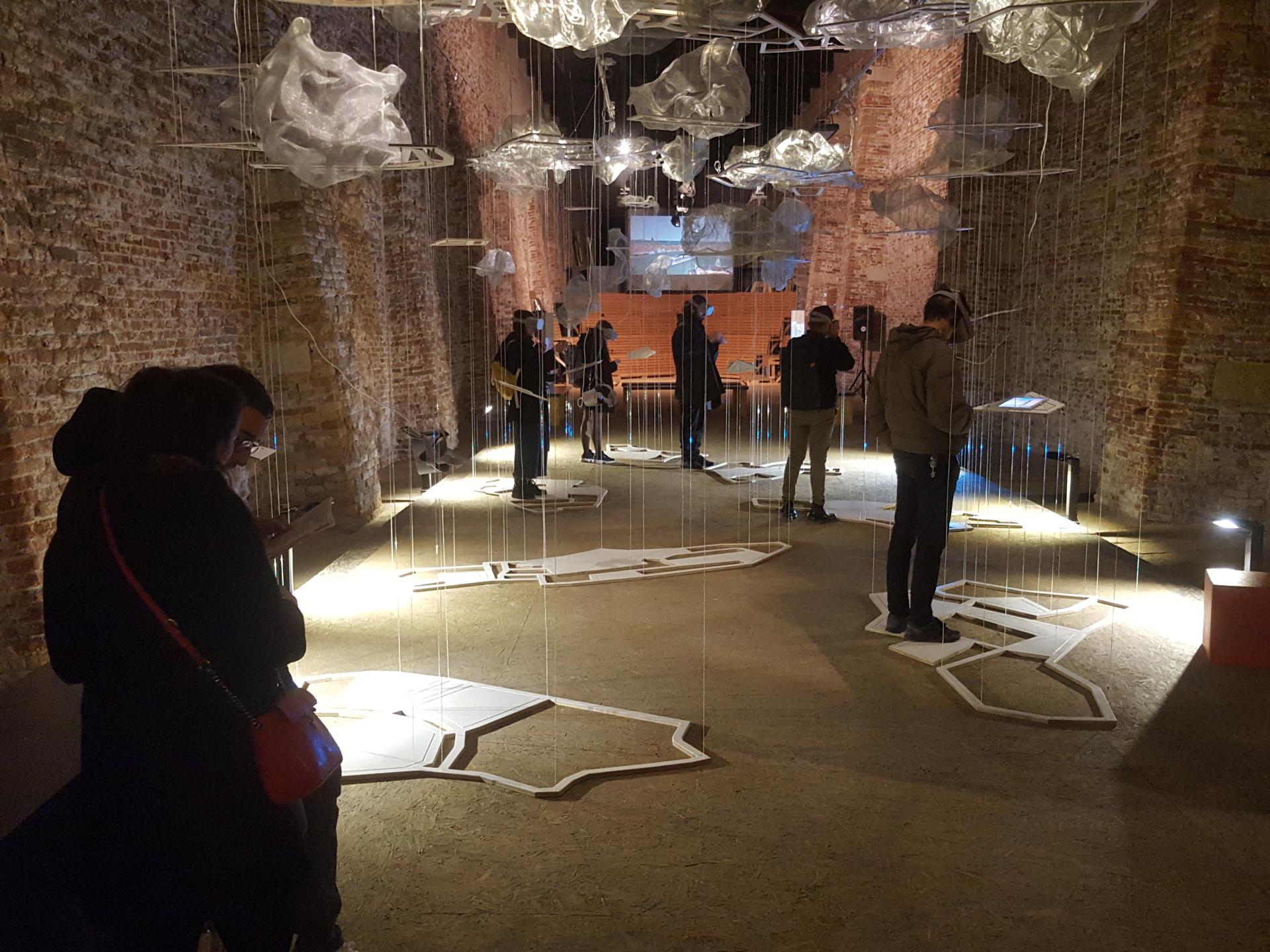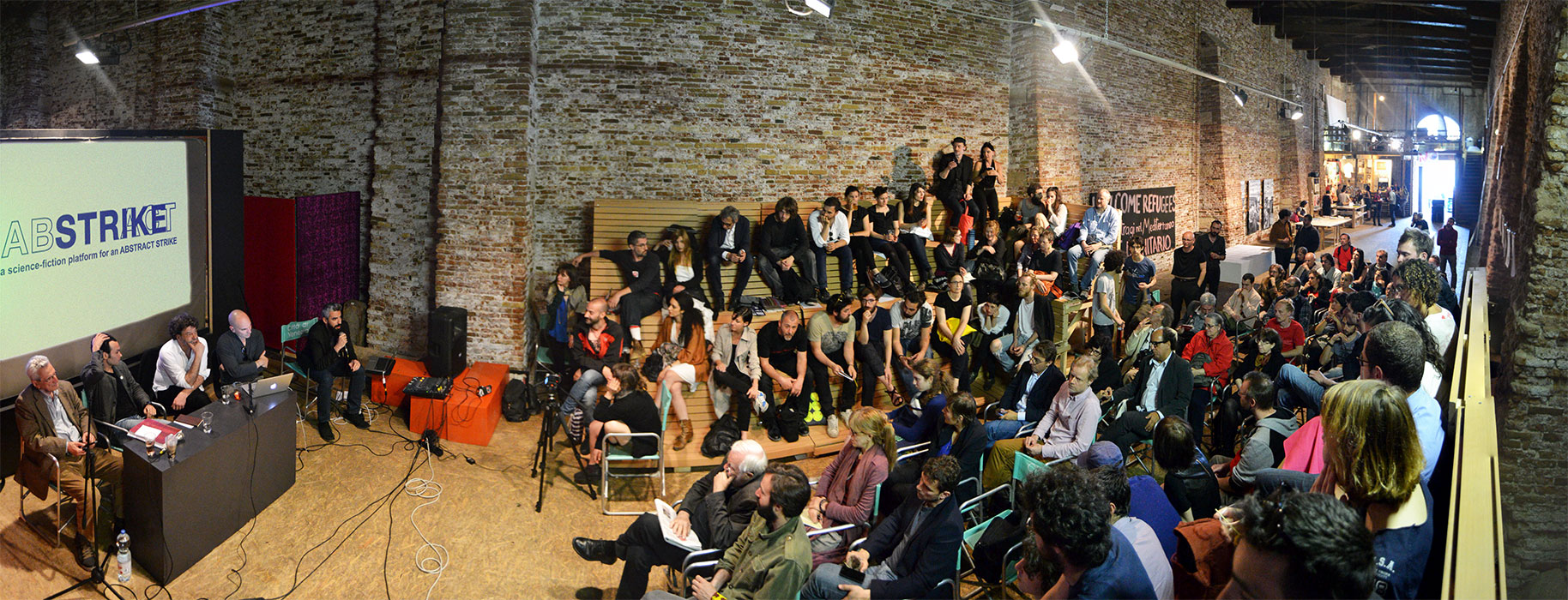S.a.L.E. Docks
Basic information
Project Title
Full project title
Category
Project Description
S.a.L.E. Docks is an open laboratory for cultural producion and research active in Venice since 2007. Placed in a previously abandoned salt storage facility, S.a.L.E. is run by cultural workers, artists and students organised in a weekly open assembly. Our programme is continuously evolving, in the last 13 years it included art exhibitions, workshops, performances, publications, seminars, public activities, most of which were collectively organised and admission free.
Project Region
EU Programme or fund
Description of the project
Summary
S.a.L.E. Docks is a cultural space located in a previously abandoned salt storage facility in Venice, Italy. Founded in 2007, S.a.L.E. is run by cultural workers, artists and students organized in weekly open assemblies. Our aim is to requalify an abandoned building and make it accessible to local and international cultural producers, art students and researchers who share an interest in bottom-up decisional processes and collective cultural production. In a city ruled by the logic of the mega-event (La Biennale) and privately owned art institutions, S.a.L.E. Docks gives space and voice to projects that envision a different idea of cultural production based on social engagement, horizontal decisional processes, inclusion, environmental consciousness, local and global interactions.
S.a.L.E. Docks is in network with local and international organizations and groups active in the fields of art workers’ rights, environmental issues, gender equality and inclusion, claiming social and public space as a common resource. On a local scale, we host the assemblies of activist feminist groups and the Committee Against Cruise Ships as well as the rehearsal of emerging theatre companies. At the same time, we collaborate with well-known international art collectives (Gulf Labour, Macao, Chto Delat) and formal institutions (Architecture University of Venice, Workspace Brussels, Goethe Institute, Reina Sofia). Inhabiting a peculiar city and fragile lagoon ecosystem, we firmly believe that no cultural production is possible without environmental sustainability. To this end we developed a local network of collectives who co-own and share most of the materials and tools (A/V system, beamers, screens, construction tools...). Since 2008 we work together with Rebiennale, a local association that recovers dismantled exhibition materials from the Biennale and turns them into new exhibition displays and social housing projects.
Key objectives for sustainability
The main factor in maintaining our project sustainable is to create small-scale, circular economies and have a project-based approach. As an independent cultural center, we rarely receive funding from Italian public institutions. Our main source of income is fundraising and donations, on occasion we co-produce events with institutions that sustain the costs of production.
To exist in a highly competitive environment (Venice is a small island where every art institution wants to be and has an extremely expensive rent market) we had to find alternative ways to operate. Firstly, we are part of a network of groups and grassroot associations which share materials, tools and expertise. We co-own an audio system, beamers, screens, electricity material, microphones, gazebos and so on. This is an effective way to cut costs, reduce waste and build long-term relationships with other associations active at a local level.
Secondly, we established a long-lasting collaboration with Rebiennale, a local association that recovers dismantled exhibition materials from La Biennale and turns them into new projects. We have been partners since 2009 and we built together most of the furniture and exhibitions displays through the year.
In conclusion, S.a.L.E. Docks has been existing for more than 13 years because we were able to create and foster a non-competitive economy that puts collaboration and re-use of materials at the center. The main reason behind S.a.L.E. Dock's resilience is the need, shared by local cultural producers and the civil society, to have a place that harbors all those cultural productions that are systematically excluded from the art system and the big events. In a city like Venice, where public space is expropriated by the economy of mass tourism, our presence also means the restitution of a small but relevant space to the use of residents.
Key objectives for aesthetics and quality
For us aesthetics is more the result of a process than a pre-established objective, as we are interested in process-based, socially engaged art. Our practices inform the aesthetics of our space and events: wooden multi-functional structures, minimalist exhibition setups, preference for performing arts and workshops rather than regular exhibition displays are just some examples.
In terms of experience, we aim to go beyond the logic of spectatorship. We always try to involve a large number of people in our events. We do not want visitors just to “consume” a product, rather we try to create a programming always open to new collaborations. In the last years, this intent gave life to art projects involving the local population as well as collaborations with other collectives and artists who also use our headquarters for free as studios or for theater rehearsals.
Key objectives for inclusion
Our main objective is to be the most inclusive we can, being in a city that can be defined as very exclusive, especially in terms of economies. Our space aims to be available to citizens and to those willing to produce culture, who would struggle to find their place in the so-called traditional institutions.
This approach gave us the chance to get in touch with many different projects and to build relationships that influenced the whole concept of S.a.L.E. Docks.
We take collective decisions through open assemblies and our cultural offer is intentionally admission free, in order to be accessible and to let anyone participate. We connect both with the local and the international art scene, with a particular focus on actuality and socially engaged contents. It is common practice to let the space in use for other groups and associations, so that they have a place for their meetings. This horizontal methodology, open to human interaction and debate, brought us to many long-lasting connections and enriched us as a collective.
Results in relation to category
Our 13 years long activity had a tangible impact on the surrounding environment: socially speaking, we can say that we increased the biodiversity of Venice, a city that is often perceived as a theme park rather than a place where people actually live. One of our main objectives has always been to create a context where inhabitants could develop their own idea of culture, in a respectful, non-competitive and spontaneous way. By opening the space to many different people, we often have been the channel between various projects that got in touch and started cooperating under our roof.
We experienced different phases and transitions, but we managed to adapt and evolve, adopting tools and competence, such as flexibility, interaction and care. S.a.L.E. Docks hosted and promoted over a dozen of events with international guests, who have been involved in artistic residencies, workshops, exhibitions, actions. All of these opportunities have always been open to the citizens of Venice, who proved to be a fertile and heterogenous ground for innovative projects. S.a.L.E. Docks has been presented as a case study on different international occasions.
How Citizens benefit
Citizens are involved as our audience when we open the space with exhibitions, talks, workshops and other cultural events. As already mentioned, most of our happenings are admission free, or if there is a ticket to pay at the entrance, it is only to support the artist or collective that we host. We offer a dynamic outlook on contemporary art, both on a local and global scale. For instance, we collaborate with different Universities and other places of knowledge of Venice, with a consequent impact on the students that inhabit the city. We truly believe in the potential of these youngest generations and we aim to be the place where they feel free to gather and create
At the same time, we value collaboration with foreign cultural institutions, such as the Goethe-Institut who involved us in various projects that had a positive and social repercussion also on the city. As a coeval path, many proposals are born with the intent of involving the civic society that happens to find their “home” in our space. We often open the space for grassroot associations and environmental activist groups in Venice; for local artists and cultural producers that need a place to work and implement their ideas; for new-born theatre companies that need space to rehearse.
We hosted several projects about urban and social issues directly linked with the city, such as "You are not welcome", an exhibition about cruise ships in Venice, and others about climate justice and environment. Some of the social instances, like feminisms and the precariousness of cultural labor, are determinant matters to us and influenced our view and production.
Innovative character
The innovative character of the project consists in the horizontal decisional process S.a.L.E. Docks implemented and the relationships we built through the years with different local, national and international groups both from the art field and rights activism.
Managing a cultural space and rejecting any form of hierarchical governance may seem naive and impossibile in a sector - cultural production - which is more and more market oriented. After 13 years of activity we can claim that collective and horizontal decisional models not only work but are instrumental to create a lively, resilient and conscious cultural scene.
At the same time, we are aware of the importance of being rooted in a certain city while fostering relationships and collaborations at international level. Being home for local grassroot groups, artists, researchers and hosting international cultural producers, having them all sit at the same table, being part of the same project, is our greatest achievement.




